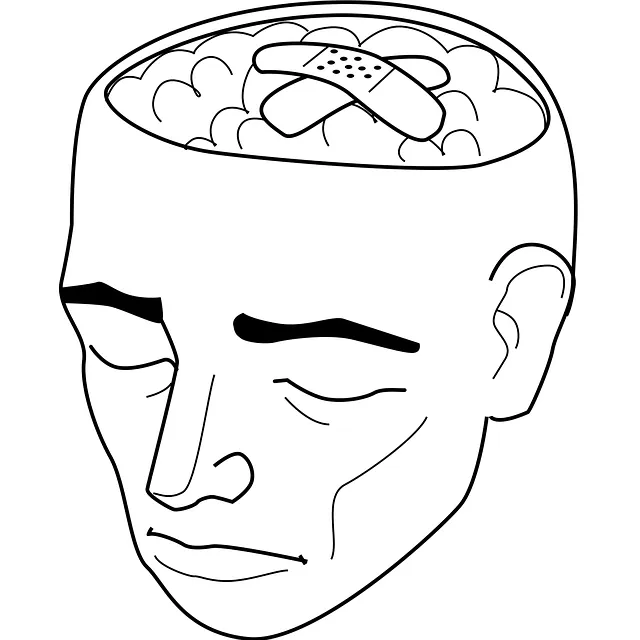Developing effective mental wellness apps requires understanding user needs, integrating evidence-based practices like CBT and mindfulness, and prioritizing diverse cultural backgrounds. Apps should offer intuitive, accessible, and engaging environments, focusing on personalized features and robust data security to enhance therapeutic outcomes. Learning from organizations like Kaiser Permanente's behavioral health phone number in Lone Tree, these apps leverage technology to reach a broader audience with valuable behavioral health interventions while maintaining ethical standards and user privacy.
In today’s digital age, mental wellness apps are gaining prominence as valuable tools for managing mental health. As organizations like Kaiser Permanente recognize the need for accessible behavioral health services, app development plays a pivotal role. This article explores the key aspects of creating effective mental wellness apps, focusing on user experience, technical considerations, evidence-based practices, and ethical implications. By understanding the needs of users in Lone Tree and beyond, developers can craft innovative solutions that enhance mental health support.
- Understanding Mental Wellness App Needs: A Focus on User Experience
- Technical Considerations for Developing Effective Mental Health Apps
- Integrating Evidence-Based Practices into Digital Therapeutic Tools
- Privacy, Security, and Ethical Implications in Mental Wellness App Development
Understanding Mental Wellness App Needs: A Focus on User Experience

Creating a mental wellness app requires a deep understanding of user needs and experiences. It’s more than just offering tools; it’s about designing an intuitive, accessible, and engaging environment that supports users’ journeys towards better mental health. Just as Kaiser Permanente behavioral health phone numbers in Lone Tree serve as vital resources for those seeking support, a well-crafted app can be a constant companion, fostering positive thinking and self-care routine development.
Focusing on user experience means considering the diverse needs of individuals, including those from different cultural backgrounds. This involves incorporating features that cater to various preferences and abilities while ensuring healthcare provider cultural competency training is integrated into the app’s development process. By prioritizing these aspects, mental wellness apps can become powerful tools in promoting overall well-being, making resources like the Kaiser Permanente behavioral health phone number in Lone Tree even more effective.
Technical Considerations for Developing Effective Mental Health Apps

The development of mental wellness apps requires a thoughtful approach to ensure their effectiveness and user-friendliness. One key technical consideration is integrating evidence-based practices and algorithms for behavioral health interventions, such as those offered by organizations like Kaiser Permanente through their Lone Tree Community Outreach Program Implementation initiatives. These programs focus on Depression Prevention and Public Awareness Campaigns Development, providing valuable resources that can be leveraged in app forms to reach a wider audience.
Additionally, app developers must prioritize data security and privacy, especially when dealing with sensitive mental health information. Robust encryption methods, secure storage solutions, and compliance with healthcare regulations like HIPAA are essential. User interface design should also be intuitive, accessible, and customizable to cater to diverse user needs. Features like personalized dashboards, interactive exercises, and secure messaging systems can enhance the app’s engagement and therapeutic value.
Integrating Evidence-Based Practices into Digital Therapeutic Tools

Integrating evidence-based practices into digital therapeutic tools is a key aspect of developing effective mental wellness apps. Organizations like Kaiser Permanente behavioral health phone number in Lone Tree highlight the importance of combining scientific research with technology to support mental health. By incorporating techniques such as cognitive-behavioral therapy (CBT), mindfulness, and positive psychology, these apps can help users develop resilience building strategies and communication strategies for managing stress.
The integration process involves rigorous testing and validation to ensure the interventions are not only effective but also accessible to a wide range of users. Digital tools that focus on evidence-based practices can significantly enhance patient outcomes, offering flexible and personalized solutions for those seeking stress management techniques. This approach aligns with the broader trend in mental health care towards remote and digital interventions, catering to modern lifestyles and preferences.
Privacy, Security, and Ethical Implications in Mental Wellness App Development

In the realm of mental wellness app development, privacy, security, and ethical considerations are paramount. Users often share intimate details about their emotional well-being, making data protection crucial. Apps like those offered by Kaiser Permanente behavioral health phone number Lone Tree must adhere to strict guidelines to safeguard personal information. This includes implementing robust encryption protocols, secure storage mechanisms, and transparent data sharing practices to ensure user trust.
Moreover, developers must navigate ethical dilemmas related to data ownership, consent, and potential biases in algorithms. The production of a Mental Wellness Podcast Series or promotion of Stress Reduction Methods and Self-Care Practices within these apps should be handled responsibly, avoiding exploitative tactics. Ethical app development fosters a harmonious relationship between technology and users’ mental health, ensuring their well-being remains the top priority.
Mental wellness app development is a burgeoning field with immense potential to improve access to care. By focusing on user experience, integrating evidence-based practices, and prioritizing privacy and security, developers can create tools that enhance mental health outcomes. Organizations like Kaiser Permanente’s behavioral health phone number in Lone Tree demonstrate the demand for these resources, underscoring the need for innovative, ethical solutions. As technology advances, it is crucial to ensure that digital therapeutic tools are not only effective but also user-friendly and trustworthy.






